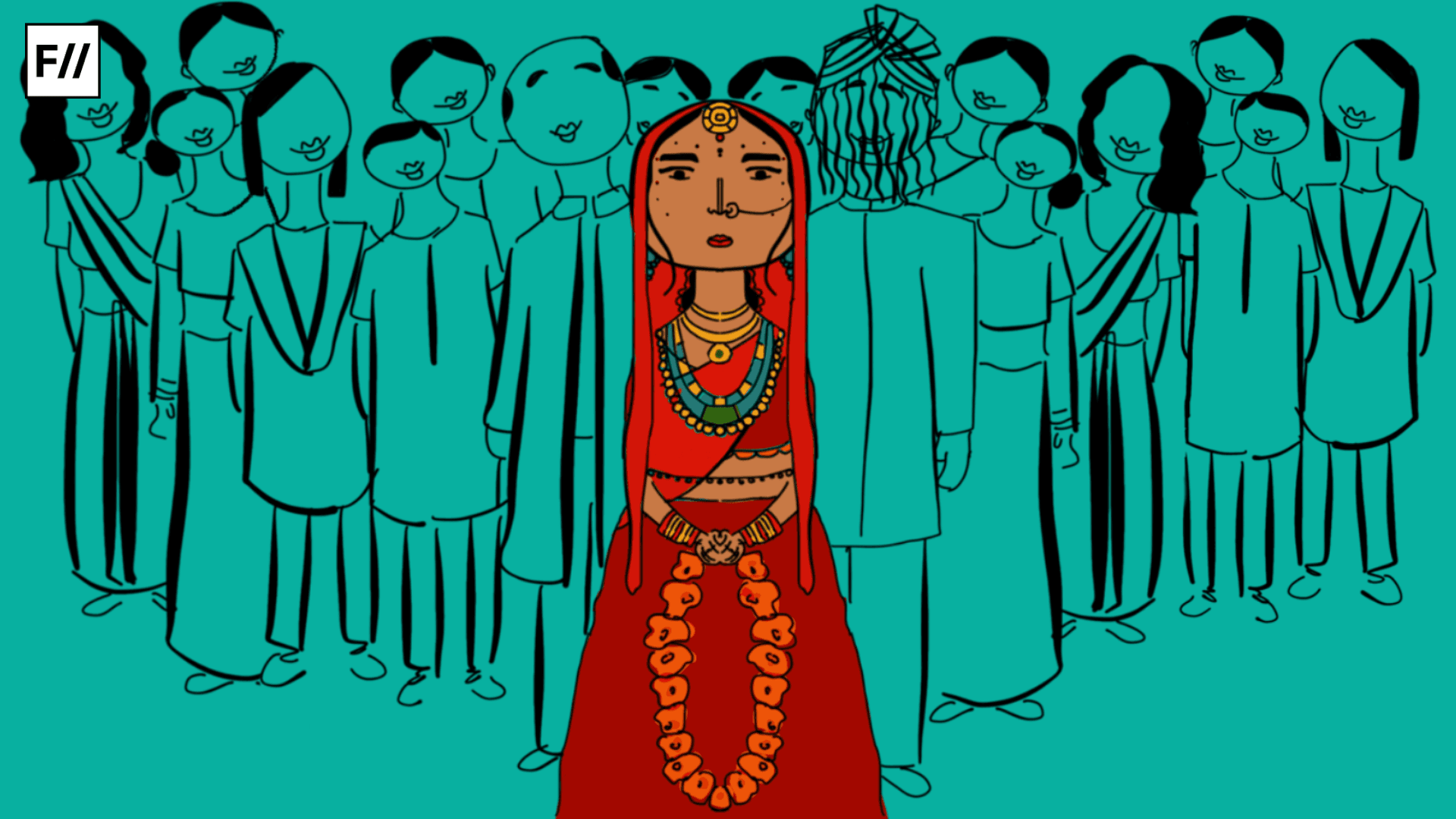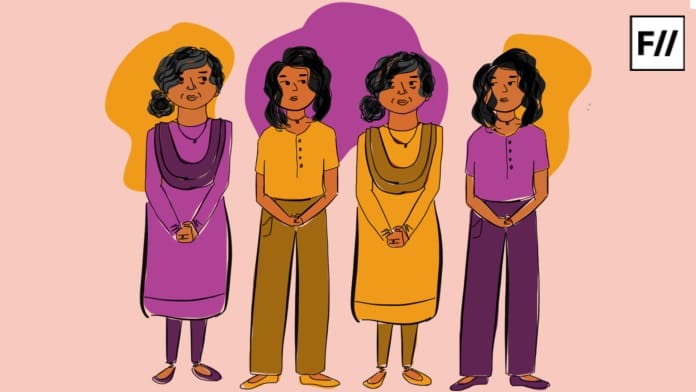Inheritance is not just about property. It is about power. It is about history, lineage, and legacy — who gets to hold it and who is made to let it go speaks volumes about the way societies are structured. It is a silent ledger of control, written in the names that appear on land deeds and bank accounts, in the signatures on legal documents, and in the weight of expectations that have, for generations, dictated that wealth must pass through men’s hands.
The ability to own and inherit property is not just a financial privilege — it is the foundation of long-term security, autonomy, and intergenerational stability.
‘Sex discrimination in economic status laws restricts women from being economically independent by limiting access to inheritance and property ownership, as well as to employment opportunities, thereby reinforcing gender stereotypes and roles,‘ notes a new report by Equality Now, an international women’s rights organisation.
The ability to own and inherit property is not just a financial privilege — it is the foundation of long-term security, autonomy, and intergenerational stability. But even when laws promise equal rights, deeply ingrained customs continue to ensure that women remain excluded from the very wealth that could set them free.

In India, despite the 2005 amendment to the Hindu Succession Act, 1956, granting daughters equal rights in ancestral property, an invisible hand still pulls wealth away from them, placing it firmly in the pockets of men. The law changed on paper, but inside homes, the battle remains the same.
The reality of women still losing inheritance
‘Nearly 70-80% of women continue to forfeit their rights to ancestral property even when the law is in their favor,‘ says Ram Raj Ojha, a property lawyer.
Data suggests that women in India own less than 20% of all land holdings, reinforcing the vast gender disparity in financial power. ‘Only 13% of women in India own a house alone, while another 29% own it jointly with someone else. Owning land alone is even lower among women at 8.3% while another 23.4% own land jointly with someone else,‘ notes another report by the UNFPA, based on NFHS data.
These numbers paint a bleak picture—not only do women lack individual ownership, but even in joint ownership structures, their agency remains questionable. Without property in their name, they lack the collateral to secure loans, the bargaining power to escape abusive marriages, and the independence to make financial decisions for themselves. In a society where land equates to power, women are systematically kept powerless.
The situation worsens, of course, in rural areas, where families continue to operate under patriarchal customs that view daughters as ‘paraaya dhan‘ — a temporary presence in their birth homes, destined to belong elsewhere.
The situation worsens, of course, in rural areas, where families continue to operate under patriarchal customs that view daughters as ‘paraaya dhan‘ — a temporary presence in their birth homes, destined to belong elsewhere. Here, inheritance is not just about economic rights; it is a question of a woman’s place in the world.

If she is not meant to stay in her parental home, what claim does she have to it? If she is expected to build a life in her sasural (marital home), why should she need wealth of her own? These beliefs — ingrained for centuries — persist despite modern laws, ensuring that rural women remain financially tethered to their husbands and in-laws, unable to create an independent safety net.
The ‘haq tyaag‘ trap’s role In women renouncing their rights
Women are thus pressured — sometimes subtly, sometimes violently — to relinquish their rightful claims. The practice of ‘haq tyaag‘, meaning ‘renunciation of rights,’ continues to strip women of their inheritance under the guise of tradition and familial harmony.
Unlike men, who inherit not just wealth but also the expectation of financial independence, women are often placed in a paradox — they are denied land on the assumption that their husbands will provide for them, yet they are also denied true financial autonomy within their marital homes. The result is a generational cycle of dependency, where women remain at the mercy of male relatives, never fully empowered to claim what is rightfully theirs.
Stripped of property, many women are left financially vulnerable, especially in the absence of other resources or support, but families defend the practice by arguing that they have already invested heavily in the daughter’s dowry and wedding, so the sons should inherit the property; it’s a cruel irony, of course. Dowry, rather than securing a woman’s future, is a transactional payment that is, in fact, prohibited under the Dowry Prohibition Act, 1961.
Dowry, rather than securing a woman’s future, is a transactional payment that is, in fact, prohibited under the Dowry Prohibition Act, 1961.
Yet, families continue to treat it as an unspoken obligation, making daughters feel like financial burdens whose marital security must be bought — not only perpetuating a misogynistic practice, but also denying her inheritance, in the process. The hypocrisy deepens when we consider the fact that lavish weddings — another justification for disinheriting daughters — are rarely about the bride.

These extravagant celebrations serve as social currency, a public spectacle designed to boost the parents’ prestige rather than the daughter’s well-being. However, this same spending is weaponised against her when it comes to property inheritance.
The injustice of dowry becomes a false justification for disinheriting daughters
The result is a lose-lose cycle for women. First, their parents ‘invest’ in a dowry that they will never personally benefit from. Then, they are expected to surrender their rightful inheritance, ensuring that real, long-term wealth — land and property — remains in the hands of sons. A daughter is thus left with neither the money given in her name nor the security that comes with property ownership.
The system is rigged, ensuring that whether in her maika (birth home) or sasural (marital home), she remains economically dependent on men. The unspoken rule is clear: land must remain within the control of men. A woman staking a claim on her inheritance is often seen as a betrayal of her family, an act of defiance that disrupts the ‘natural’ order.
The system is rigged, ensuring that whether in her maika (birth home) or sasural (marital home), she remains economically dependent on men.
‘If we don’t do it, our family will boycott us. Our relationship with the family will break, and people will speak ill of us,’ Devi, a woman from Rajasthan’s Chaksu village, told Reuters.
The situation isn’t too different in cities either. ‘I never expected my own mother to emotionally blackmail me to forfeit my share in our ancestral property. She said that since she is dependent on my brother she would bear the brunt if I decided to claim my share. After that, I had no choice but to forget about my share but my relationship with my mother was never the same again,’ Suman, a schoolteacher from Mumbai, recalled.
Coercion takes many forms — emotional blackmail (as in Suman’s case), social ostracisation (as in Devi’s case), threats of violence, and in extreme cases, legal trickery that ensures she never even knows what was rightfully hers.

A daughter’s love is measured in sacrifice, her worth in how much she is willing to give up. A woman who asserts her inheritance is seen as greedy, disruptive, and selfish, while a woman who silently walks away from her claim is upheld as a dutiful daughter and sister. And so, in this grand scheme of inheritance, what women often surrender isn’t just land, but their very autonomy.
When a woman’s wealth and inheritance benefits her in-laws, it suddenly matters
Interestingly, the rising value of property has motivated many men to encourage their wives to claim inheritance. ‘[B]ecause prices of land have sky-rocketed in these areas, women are being pushed by their husbands or fathers-in-law to claim their share of the family property, or at least be compensated in some way for it,‘ notes Prem Chowdhry, a prominent independent researcher on women’s inheritance in Haryana.
A research paper Chowdhry had authored for the UN Women contains the story of a woman named Rekha from Ratthdhanna village in Sonepat, Haryana. Rekha’s story highlights a striking contradiction in the way women’s inheritance rights are treated. Married off to a policeman, she was not encouraged to claim her father’s property until land prices in Sonepat skyrocketed, and her in-laws saw an opportunity.
Pressured by her husband and father-in-law, she proceeded to demand a share of the wealth her father had amassed from selling land. But while her brothers — both unemployed — were permitted to use the wealth as they wished, Rekha’s demands were dismissed with just some jewellery.
But while her brothers — both unemployed — were permitted to use the wealth as they wished, Rekha’s demands were dismissed with just some jewellery.
What makes her case particularly telling, though, is the way her treatment at her in-laws’ place shifted once they discovered she may be the rightful owner of of crores worth of land. Rekha’s husband, Rajbir, who had openly admitted to slapping her “to keep her straight,” stopped the violence. The possibility of her owning property — even if for her in-laws’ benefit — was enough to afford her a level of respect and restraint that dowry never could.

Basically, when in-laws see a woman as a potential landowner, they suddenly begin treating her better; it underscores how financial security tied to property — and, not dowry — can actually offer women real bargaining power in their marital homes. Yet, families continue to deny daughters their rightful inheritance, preferring, instead, to fill the daughters’ in-laws’ coffers to afford their daughters a false sense of security, instead.
When will families realise that securing a daughter’s future means giving her what is rightfully hers — not negotiating her worth through wealth that never truly belongs to her? ‘The 4th UN Conference on Women in 1995 gave birth to The Beijing Platform for Action, the most progressive blueprint ever for advancing women’s rights. Governments worldwide pledged to change or remove their existing discriminatory laws and make legal equality a reality. Nearly 30 years later, that goal is far from being realized. None of the 190 economies surveyed by the World Bank in 2024 had achieved legal equality, and a typical economy only grants women 64% of the same rights as men. At the current pace of reform, the UN estimates that the world will not enjoy the benefits of legal equality before 2310,’ Equality Now’s report states.
Until then, inheritance will remain a battleground where women are forced to fight for what should never have been in question, to begin with.
About the author(s)
DevRupa Rakshit is an independent journalist and communications professional at work, and a storyteller and artivist at heart. She's autistic, ADHD, and lives with cats!





